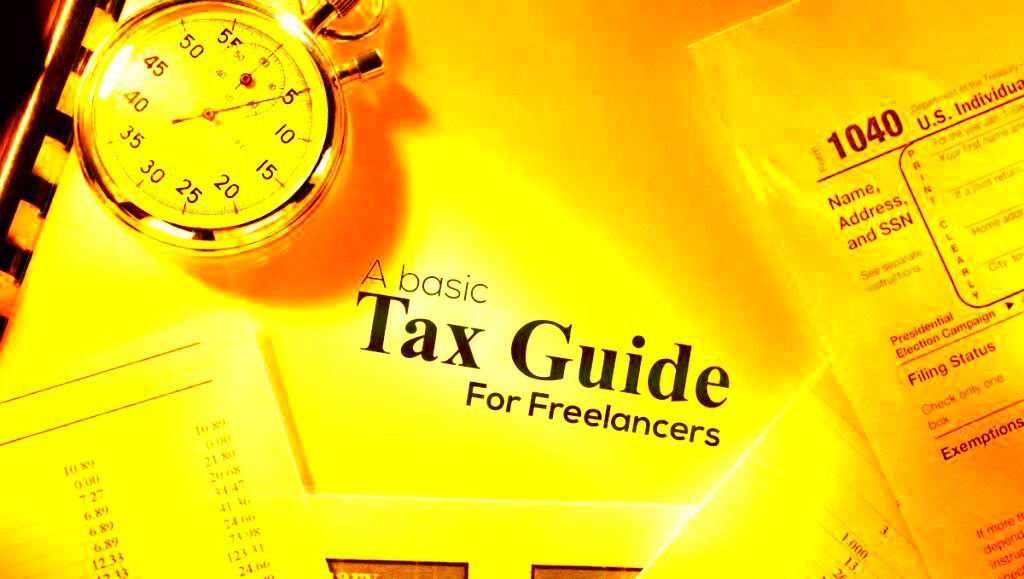Freelancers usually have the liberty of being their own superiors, but this independence is accompanied by specific tax obligations. Unlike traditional employees, freelancers must take care of their own tax payment actions. Thus, he/she has to know what he/she owes and the time when it has to be paid. If you have knowledge on your taxation, you can evade fine and enjoy attractive earnings as well.
It is vital for freelancers to grasp:
- Your income tax obligations, which vary based on your total income.
- Self-employment taxes, which cover Social Security and Medicare.
- Quarterly estimated tax payments, which you may need to make throughout the year.
By understanding these obligations, you will not be taken by surprise when the tax season comes. You can manage your finances better and stay in business by being proactive about your tax obligations.
Common Tax Deductions for Freelancers

Every freelancer is grateful for the privilege of getting several tax deductions which help minimize their taxable income. Understanding deductible items ensures that you save money and your cash remains intact. Below are examples of common deductions:
- Home Office Deduction: If you use part of your home exclusively for your business, you may be able to deduct associated costs like utilities and rent.
- Equipment and Supplies: Costs for tools, software, and office supplies are often deductible.
- Professional Services: Fees for accountants, legal advice, and other professional services are deductible.
- Travel Expenses: If you travel for work, you can deduct costs for transportation, lodging, and meals.
- Education and Training: Courses and workshops to improve your skills can be deducted as business expenses.
Keeping track of your expenses and holding onto receipts will make tax time much easier and ensure that you’re getting back all the money possible in deductions, go through an extra mile to maintain elaborate notes for every single item of purchase.
Also Read This: Can You Decline a Fiverr Order? Understanding Your Options
Keeping Accurate Financial Records

Freelancers need precise financial records. They help in tracking income and expenditures, apart from making tax filing easier. By having organized records you can easily identify those expenses that can be deducted plus keep an eye on your overall financial condition. Below are some ways of being able to manage your files efficiently:
- Use Accounting Software: Programs like QuickBooks or FreshBooks can help manage your finances effectively.
- Track All Income: Document every payment you receive, regardless of the amount. This helps ensure that you report all your income accurately.
- Organize Receipts: Keep receipts for every business-related purchase. You can store them digitally or in physical folders.
- Review Monthly: Set aside time each month to review your income and expenses. This practice can help you catch discrepancies early.
- Consult a Tax Professional: If your finances become complex, seeking advice from an accountant can help keep your records in check.
By keeping up-to-date records, you can make sound decisions regarding your company and ensure a smooth tax period.
Also Read This: How to Report a Fiverr Account: A Step-by-Step Guide
Filing Taxes as a Freelancer

Freelancers might find it difficult to file taxes; particularly for those who are new in self-employment. The tax situation of freelancers is different from that of conventional employees and thus requires meticulousness. Nevertheless, once you get familiar with the fundamentals, things become easier. In this segment, we shall provide the steps on how to successfully file your taxes.
When filing taxes, these are the things that need to be taken into account.
- Gather Your Documents: Collect all relevant documents, such as 1099 forms from clients, receipts for expenses, and bank statements. Having everything in one place will streamline the filing process.
- Determine Your Filing Status: Most freelancers file as self-employed individuals. Ensure you understand your tax bracket and how it applies to your income.
- Choose Your Filing Method: You can file your taxes manually or use accounting software. Many freelancers prefer software for its ease and efficiency.
- Report All Income: Make sure to report all income you earned, even if you didn’t receive a 1099 form. The IRS requires you to report all earnings.
- Consider Using a Tax Professional: If your situation is complex, consulting a tax professional can help you navigate deductions and ensure accuracy.
You can submit your tax returns knowing how to confidently abide by the IRS rules. Moreover, do not forget to save the copies of those filed returns for you may need them later in life!
Also Read This: Earnings of Freelancers
Self-Employment Taxes Explained

Freelancers’ tax obligations include a huge slice that goes toward self-employment taxes. This means that they need to calculate and pay these on their own rather than having them withheld from incomes like traditional employees do. Therefore, understanding self-employment taxes is essential to maintain your finances.
Usually, self-employment taxes pay for:
- Social Security Tax: This tax funds the Social Security program, which provides benefits for retirees, disabled individuals, and survivors.
- Medicare Tax: This tax helps fund Medicare, which provides health insurance for individuals aged 65 and older.
The self-employment tax rate is currently 15.3%, which consists of 12.4% for Social Security and 2.9% for Medicare. Here’s how to calculate it:
- Calculate your net earnings from self-employment.
- Multiply your net earnings by 92.35% to find your self-employment income.
- Multiply the self-employment income by 15.3% to determine your self-employment tax owed.
This levy can be huge, hence it is important that you allocate some resources for it during the year. Moreover, when determining your modified gross income (AGI), you can deduct half of the self-employment tax which may assist in reducing the total taxes owed.
Also Read This: How Much Money Does Fiverr Make?
State Taxes and Their Impact on Freelancers
If you are a freelancer, your financial situation may be greatly influenced by state taxes that depend on your location of residence and work. Each state has different tax rules, and understanding them helps in good financial planning.
Below are some important factors which you ought to bear in mind about taxes at state level:
- State Income Tax: Many states impose an income tax on earnings, and rates can vary widely. Check your state’s tax website to understand the rates that apply to you.
- Sales Tax Obligations: If you sell products or certain services, you may be required to collect and remit sales tax. This varies by state, so ensure you know the requirements.
- State-Specific Deductions: Some states offer deductions or credits specific to freelancers. Research what’s available in your state to maximize your tax benefits.
- Estimated Tax Payments: Many states require freelancers to make estimated tax payments throughout the year. Be sure to check your state’s rules to avoid penalties.
To stay compliant take some time to review accurate records of your income and expenses, as well as being alert to shifts in state tax law. If you require assistance, it is recommended that you consult a tax professional who is knowledgeable about the regulations of your state; doing this will help equip yourself with the right guidance on how best to run a freelance business.
Also Read This: Does Receiving a Warning on Fiverr Make You Lose Levels?
Preparing for Tax Season
As the tax season draws near, you must be sufficiently ready to avert any eleventh-hour panic. This means that freelancers should put together all necessary paperwork and recognize their tax responsibilities. Taking the time to manage your finances properly can save you from wasting both time and cash. The following is a helpful checklist for the preparation process.
In order to be prepared, bear in mind the following procedures:
- Organize Your Records: Collect all your income statements, such as 1099 forms and invoices, and organize them by month or client.
- Document Expenses: Gather receipts and records for all business-related expenses. Consider using software or apps to track these efficiently.
- Review Last Year’s Return: Take a look at your previous year’s tax return. It can help you understand your deductions and any changes in your financial situation.
- Estimate Your Taxes: Calculate how much you might owe this year based on your income and expenses. This will help you plan and avoid surprises.
- Consider Professional Help: If you’re unsure about any aspect of filing, don’t hesitate to consult a tax professional for guidance.
For that reason, you should expect to have less cluttered days once you prepare ahead of time. The last-minute rush is a great source of stress hence why good preparation always helps in avoiding such circumstances!
Also Read This: How to Register in Fiverr: A Step-by-Step Guide
Frequently Asked Questions about Freelance Taxes
Freelancers usually have a lot of inquiries when it comes to tax period. It is complicated to work out the distinctive taxation duties that accompany being one’s own boss. To help with this confusion, below is a list of certain frequent questions that freelancers ask as well as their responses.
| Question | Answer |
|---|---|
| What forms do I need to file? | Most freelancers file a Schedule C along with their Form 1040. You may also need to file a Schedule SE for self-employment tax. |
| Can I deduct home office expenses? | Yes, if you use a part of your home exclusively for your business, you can deduct related expenses. |
| Do I need to pay estimated taxes? | Yes, if you expect to owe $1,000 or more in taxes, you’ll need to make quarterly estimated tax payments. |
| What happens if I miss the tax deadline? | If you miss the deadline, you may incur penalties and interest. It’s best to file as soon as possible to minimize any consequences. |
A bit of knowledge may lessen your anxiety about freelance taxation because you are likely to know the answers of the commonly asked questions. For more specific queries, one can think about discussing with a tax expert who will advise on your unique situation.
Conclusion on Tax Considerations for Freelancers
Freelancers’ tax landscape can be tedious to get through; however, when you acquire proper knowledge and plan well, it becomes an easy process. It is important to understand about tax requirements, the deductions that you are entitled to, as well as having correct records so that you can be financially fit. Therefore, to avoid tension during tax period prepare early enough and also save more.
Keeping up-to-date with federal and state tax legislation should be your top priority because this may influence your entire tax circumstance. Importantly, it is necessary to undertake being proactive and prepared irrespective of whether you are going to file or hire a tax professional. Consequently, you can concentrate on freelancing instead of worrying about taxes during the season.
At last, a successful freelance worker is not just a good work deliverer but also financially conscious. You can make it easier for yourself by taking charge of your taxes!




